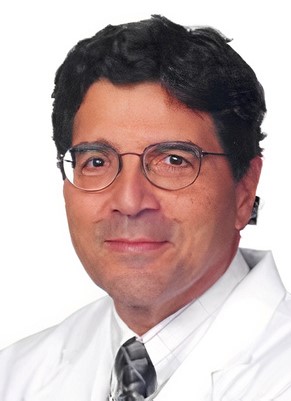 Dr. A. Joseph Layon, MD, FACP, is a renowned physician, author, speaker and professor of Anesthesiology at The University of Central Florida, College of Medicine Orlando, FL Intensivist – ICC/HCA Ocala, Florida.
Dr. A. Joseph Layon, MD, FACP, is a renowned physician, author, speaker and professor of Anesthesiology at The University of Central Florida, College of Medicine Orlando, FL Intensivist – ICC/HCA Ocala, Florida.
Layon is an intensive care physician trained at Grossmont College, the University of California, San Diego and UC, Davis, He enjoyed his time training in California and garnered a powerful medical education.
Today he specializes in internal medicine, anesthesiology, critical care and neurocritical care. Dr. Layon has functioned as a clinician, educator, investigator, division and department chair, Faculty Senate Chairman. He was present at the beginning of the three major pandemics of our era – HIV/AIDS, Ebola, and SARS-CoV-2, he presently cares for ill fellow humans with these and other critical illnesses.
Q: Where do you see fault with our healthcare system today?
Layon: The biggest problem with our healthcare system is that we do not really have a system of healthcare. In the United States, we do remarkable things – such as organ transplantation, rapid vaccine development and deployment, and Trauma Care, among others – remarkably well. But the standard things, the routine things, such as access to health care for all, appropriate care of hypertension, diabetes, humane care, and end of life care, we do rather poorly. And the reason for this is, I believe – and there are research data to support this line of reasoning, it is not just my opinion – that we have turned healthcare over to the so-called free market, which is most assuredly not free and hardly a market in terms of the common conception of how markets work. What we have is privatized healthcare with quite large administrative overhead – up to 30 cents on the dollar in some studies – large out-of-pocket and deductible payments, and a significant portion of our population that is either underinsured or uninsured. These latter groups may make up as many as 80 million people in our country. The Affordable Care Act, signed into existence by President Obama, was a reasonable first step to provide healthcare to all Americans.
However, as it has developed, it has essentially become a cash cow for insurance companies. It is unwieldy, expensive, and complicated. And this is the “progressive” change to our healthcare system of finance. If we began to discuss employer-based insurance or insurance that is obtained privately, things become even more complex, expensive, and difficult.
What we should do is dependent upon what it is that we wish for. If our wish is to enrich a handful of private, for-profit insurance companies, health corporations and drug companies, then we should leave the system precisely as it is. As I write this today, women of childbearing age in the United States are at a higher risk of peripartum death than was my wife. This is grossly unacceptable. And the risk of peripartum death is about three times higher if the woman giving birth is an African American, notwithstanding education or financial status. Today, the life expectancy of Americans has decreased over, at least, the past 2 years and is significantly lower than our peer nations that are considered “economically developed”. This despite the United States spending more money per capita on health than any other country in the world; this is truly outrageous.
We are merely enriching a handful of corporations. In our United States, again, something on the order of 560,000 families yearly declare bankruptcy primarily due to, or related to, healthcare expenditures/debt. Beyond the pain inflicted on our countrymen and women by this in humane system – pain that is both physical and mental – the organization of this health system, of which I am a part, is ruining our economy. Men and women who might want to strike out on their own to start a company, or write, or paint, are unable to do so because, if they leave their jobs, they will have no health coverage, and if they get sick, they could be ruined; if their child or partner becomes ill, they could be ruined.
This is what is wrong with our health system. We have superb nurses, superb physicians, superb administrators, but the system is set up in a manner that maximizes, not the healthcare of our people, but the profits of a handful of corporations. It is set up to be expensive and provide poor outcomes; and these are exactly the results we get.
Q: What can our Congress and Senate do to improve healthcare in the USA?
Layon: Our Congress could begin to consider the needs of the people of the United States, rather than their dark money funders. If they were to do this, and if they were obliged to utilize the same Health System that every other American utilized, we would see improvement almost overnight. This would not be, of course, a panacea. There would be problems and disagreements: How large should the National Health Budget be? What services will and will not be covered? How will new hospitals be built? How will research be funded? How will new medications and equipment be evaluated for efficacy? How will the health care team interact with patients and with one another? All of this will need to be discussed and debated, and there will be disagreements. However, as long as we keep the American people and their need for high quality, safe, and humane healthcare as the central issue, we will come to the right decisions.
Q: The USA is ranked below Norway, France and Canada in healthcare, how can the system improve?
Layon: It is not just that the United States ranks below Norway, France, and Canada in healthcare outcomes. The 2014 Commonwealth Fund report by Professor Karen Davis and her colleagues, pointed out that of 11 nations studied – Australia, Canada, France, Germany, the Netherlands, New Zealand, Norway, Sweden, Switzerland, the United Kingdom, and the United States – the US health system ranked dead last, underperforming most dimensions of care, as it had in 2004, 2006, 2007, and 2010. Our health system was last or near last on the dimensions of access, efficiency, and equity. As I stated above, this poor performance has nothing to do with inadequate nurses, doctors, pharmacists, or administrators. It has everything to do with the way that our health system is organized: Which is as a profit center. This can be improved very rapidly and at a lower cost than at present, with the creation of a National Health System: Medicare for All, or some variant.

Q: Your new book is titled “A Peoples Guide to End of Life”-why did you write it?
Layon: For the past 40 years I have been thinking about death and dying. I have cared for, in the course of my medical practice in the ICU – surgical, trauma, and burn ICUs primarily – thousands of very ill fellow humans of whom some small percentage – 4% to 6% – have died. As a normal person, I have watched members of my family become ill and die: My father, my younger sister, my mother, uncles and aunts, friends. And, I know that one day, it will be me in that bed, dying.
I have not been impressed, for the most part, by the way we in medicine deal with death and dying. So, thinking and reading about this over the years, I tried to come up with a systematic approach to the process of death. A People’s Guide to End of Life is the result.
The specific reason, though, was to try to be of service to my brothers and sisters, here and abroad. Three of my colleagues, one in Iran, one in Turkey, and one in Japan, have asked to translate the book. This will be an absolute honor. Although the culture of death is different in different countries, there are enough similarities that, I think, this volume might be useful to people from other cultures. And, of course, each of these friends and colleagues will add elements that they think need to be included for the book to be useful in their cultures.
Q: What are a few critical points from the book?
Layon: 1: We should talk with our loved ones about our wishes if we were to become very ill – each of us will die, after all – before we fall sick. Doing this does not mean one cannot change one’s mind. Nor will discussing these issues “make them happen”.
- Each of us should have someone who can speak for us if we become very ill and can no longer speak for ourselves. This is termed a health care surrogate.
- When a loved one becomes ill, ensure that there is one or two of you who are the designated “communicators”. This is a person (persons) who will carry the family’s questions to the health care team and bring the answers back to the family. The health care team cannot answer the same questions over and over to different members of the family. This is why it matters that someone – or someone’s – are designated the spokespeople.
You can learn about Dr. Layon more by visiting: https://ajosephlayonmd.com/
Advertising disclosure: We may receive compensation for some of the links in our stories. Thank you for supporting LA Weekly and our advertisers.
